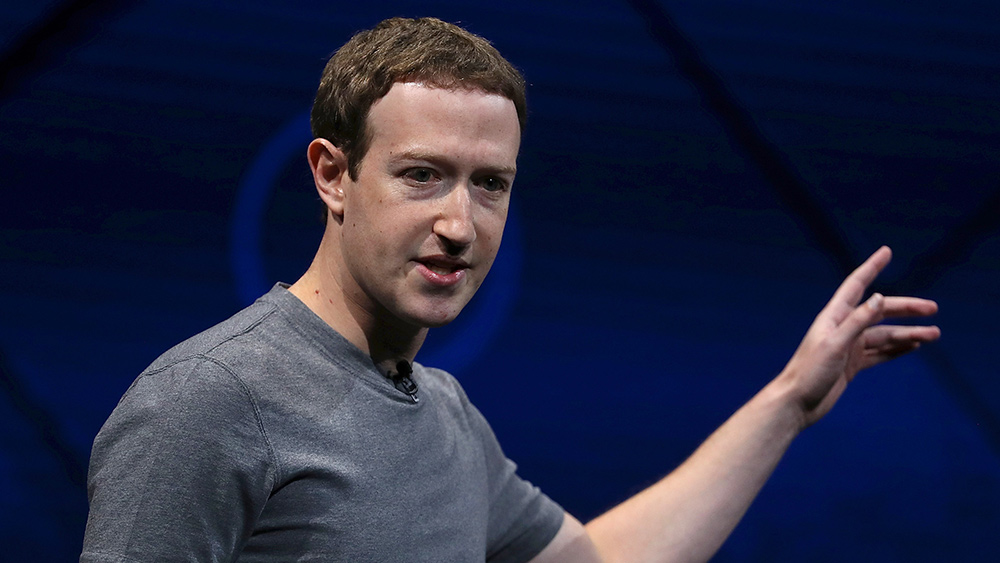Telegram founder says FBI wanted a backdoor in messaging app so they can spy on users
04/22/2024 / By Cassie B.

The U.S. government pushed for the developers of the messaging app Telegram to include a “backdoor” that would allow them to spy on users, according to the platform’s founder, Pavel Durov.
Speaking to Tucker Carlson, Durov explained how this unwanted attention from the FBI was one of the reasons the Russian-born developer abandoned his plan to set up his company in San Francisco.
Durov and his brother, Nikolay, founded the Russian version of Facebook, VK, before coming up with the idea for Telegram, which is considered one of the best-protected and safest communication apps available today. After refusing to comply with demands by Russia to shut down opposition communities on VK, he sold his stake in the platform and left the country and lived several other places while searching for the ideal base for Telegram.
He told Carlson that he went to the U.S. several times while making his decision, even meeting with Twitter’s former CEO, Jack Dorsey, on one occasion. However, he reports that he felt uneasy in the U.S. because the FBI was keeping tabs on him, characterizing the experience as “alarming.”
According to Durov, one of his best employees came to him and said he had been approached by the American government. He explained: “There was a secret attempt to hire my engineer behind my back by cybersecurity officers. They were trying to persuade him to use certain open-source tools that he would then integrate into Telegram’s code that, in my understanding, would serve as backdoors.”
He said he had also experienced that pressure himself after being approached by law enforcement officials on multiple occasions.
“Whenever I would go to the U.S., I would have two FBI agents greeting me at the airport, asking questions. One time, I was having breakfast at 9 am and the FBI showed up at the house that I was renting,” he added.
His experience in the U.S. ultimately led him to decide against setting up a base there, choosing Dubai as Telegram’s home instead.
“My understanding is that they wanted to establish a relationship to control Telegram better. I understand that they were doing their job. [But] for us, running a privacy-focused social media platform, that probably wasn’t the best environment to be in,” he noted.
Durov says Google and Apple are biggest threats to freedom of speech
Although this attention from the FBI made him uncomfortable, he said that he doesn’t consider governments to be the main challengers to freedom of speech; instead, he identified competitors such as Google and Apple as the biggest threats.
“Those two platforms, they could basically censor everything you can read, access on your smart phone,” he noted, adding that they told Telegram it would be removed from their online stores if it did not comply with their guidelines.
Durov said that his aim is to keep the platform politically neutral, although he admitted that some protest organizers have used it in different countries. He told Carlson he believes they will attract 1 billion active users a month within a year; Meta’s WhatsApp, meanwhile, has more than 2 billion monthly active users. Telegram is especially influential in countries that used to be part of the former Soviet Union.
This behavior on the part of the FBI should come as no surprise as they already have a backdoor into popular social media apps such as Facebook, YouTube and Instagram. Moreover, an internal FBI guide from 2021 showing law enforcement agencies what type of data they can request from the nine most popular messaging apps stated that it is particularly easy to obtain data from Facebook’s WhatsApp and Apple’s iMessage, as long as they have a subpoena or warrant.
Sources for this article include:
Submit a correction >>
Tagged Under:
big government, Big Tech, computing, conspiracy, cyber war, deception, FBI, FBI corruption, Glitch, information technology, insanity, Pavel Durov, police state, privacy watch, Social media, spy gate, spyware, surveillance, tech giants, technocrats, Telegram, WhatsApp
This article may contain statements that reflect the opinion of the author
RECENT NEWS & ARTICLES
COPYRIGHT © 2017 BigTech.news
All content posted on this site is protected under Free Speech. BigTech.news is not responsible for content written by contributing authors. The information on this site is provided for educational and entertainment purposes only. It is not intended as a substitute for professional advice of any kind. BigTech.news assumes no responsibility for the use or misuse of this material. All trademarks, registered trademarks and service marks mentioned on this site are the property of their respective owners.



















